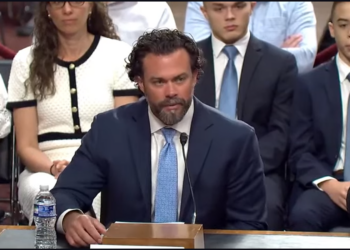The Emerson College poll, obtained by Politico, showed Cooper with 47% compared to Whatley’s 42%, with 12% unsure. Cooper has a massive lead among independents, with 47% supporting him and 28% supporting Whatley.
Part of the disconnect is a lack of name recognition for Whatley, a first-time candidate. Nearly two-thirds of voters polled didn’t know or were unsure of Whatley, compared to just 16% for Cooper. Cooper enjoyed a majority favorability rating, while Whatley enjoyed 17% favorability and a 16% unfavorability rating.
“With over a year to go until the North Carolina U.S. Senate race, Whatley’s low name recognition presents both a challenge and an opportunity, while only 17% view him favorably, nearly two-thirds of voters either don’t know him or are unsure. That leaves room for his campaign to define him before his opponent does,” Emerson College Polling executive director Spencer Kimball said in a statement. “In contrast, Cooper enters the race with significantly higher name recognition and a more favorable public image.”
Polls are likely to get closer as the high-stakes matchup nears — 41.5% of voters said they’d support the Democrat in congressional races, and 41.3% said they’d support the Republican candidate. With the North Carolina Senate race set to be one of the most expensive of the 2026 cycle, nearly every voter will likely have an opinion about Whatley one way or another come November of next year.
The two are competing to replace Sen. Thom Tillis (R-NC), who announced he wasn’t running for reelection amid clashes with President Donald Trump. Friday’s poll largely vindicated his decision, giving him a paltry 30% approval rating, with 43% of voters viewing him unfavorably.
GOP UNITES BEHIND WHATLEY AHEAD OF HIGH-STAKES SHOWDOWN WITH COOPER IN NORTH CAROLINA
“Senator Tillis’ retirement aligns with his weak favorability: just 41% of Republican voters view him favorably, while 35% view him unfavorably. He’s also underwater with independents, with 43% unfavorable and only 27% favorable,” Kimball said.
Democrats view North Carolina as one of their most likely pickups in 2026. They need to flip four seats to obtain control of the Senate.
















